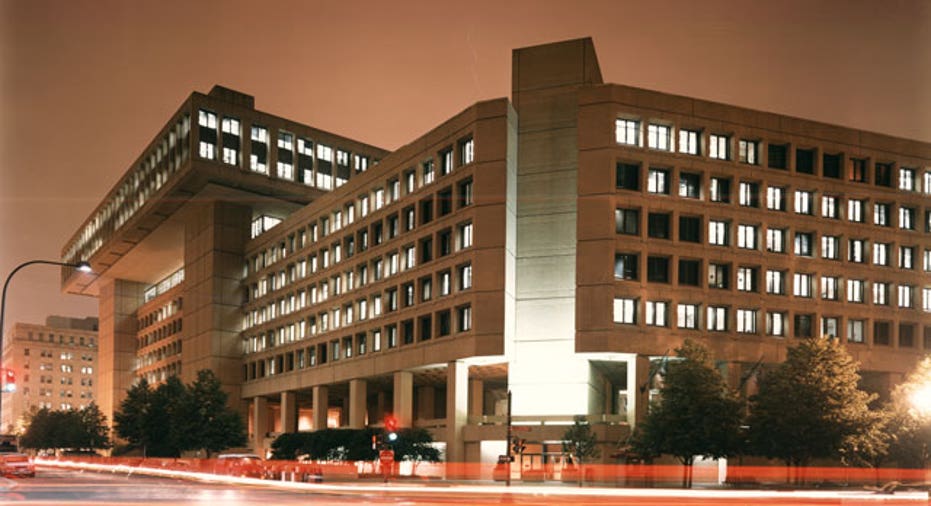Insider Trading Probe A Long-term Deterrent?

The high-profile federal insider trading investigations that have so far netted 64 arrests and 59 convictions or guilty pleas call to mind the state trooper hiding just around the bend on a long stretch of highway.
He’s bound to catch a lot of speeders because a lot of people are speeding. The fear is that once the speeders wise up to the fact that the trooper's there they'll slow down until he leaves. Then they’ll all start speeding again.
Traders with decades of Wall Street experience believe insider trading is far more widespread than generally acknowledged, even as the FBI conceded earlier this week that hundreds of people remain under investigation for trafficking in illegal information and that prosecutions could continue for another five years.
Still, the ongoing probe dubbed “Perfect Hedge” and spearheaded by the Manhattan U.S. Attorney’s office under Preet Bharara, with significant contributions from the FBI and the Securities and Exchange Commission, is almost universally praised as at the very least a strong deterrent.
Even if the wide-ranging investigations don’t eliminate the practice, which they won’t, the conviction last year of billionaire hedge fund founder Raj Rajaratnam and the prosecutorial microscope placed over so-called expert networks has undoubtedly sent a much-needed message to Wall Street: clean up your act.
"Everyone on Wall Street thinks they’re smarter than the next guy."
On Monday, the FBI held a press conference for no other reason than to announce that some 240 individuals remain under investigation for insider trading, and that half of them could eventually be prosecuted. In other words, the feds were letting the bad guys know they haven’t closed up shop and moved on to something else.
Granted these numbers represent a tiny fraction of the more than 800,000 people employed in the securities industry in the U.S. But in an industry essentially built on trust (trust that’s been badly shaken in recent years) a handful of bad guys can have a disproportionately negative impact.
The government seems acutely aware of this dynamic, and thus intent on maintaining the high-profile status of their probe.
“The implicit message is, ‘We’re going to stay on this. You may beat us on occasion, but we’re going to stay on you and eventually we’re going to get you.’ That’s the critical point,” said Jeremy Schwimmer, a principal at private equity firm Sand Oak Capital Partners.
The "high-profile investigation as deterrent" strategy is widely viewed as the most effective method of curbing the illegal passing of information among Wall Street insiders, a practice that slowed following successful probes in the late 1990s in the wake of the dotcom boom.
Current Wall Street traders say insider trading exploded during the past decade as enforcement grew lackadaisical again and trading by largely unregulated hedge funds grew exponentially.
The real estate boom of the early 2000s generated hefty returns for those hedge funds savvy enough to exploit the complicated derivatives that were constructed largely around dodgy mortgage-backed securities. Those returns prompted the creation of scores of other hedge funds and the competition for bigger returns grew increasingly intense.
Not surprisingly, the potential for ever-bigger returns led to a corresponding increase in peoples’ willingness to engage in risky and potentially illegal practices.
Meanwhile, the research scandals of the late 1990s at a number of investment banks in which analysts were accused of being little more than highly paid shills for the stocks they reviewed led to the rise of "expert network," ostensibly independent analysts who, for a price, could assist investors in making informed decisions.
In the wake of these combined factors, prosecutors have revealed the all-too-predictable results:
- Rajaratnam, a founder of hedge fund Galleon Group, an especially aggressive fund which at its peak in 2008 was valued at $7 billion, allegedly received illegal tips directly from a Goldman Sachs (NYSE:GS) board member.
- Sketchy expert network firms such as Primary Global Research routinely matched their clients with often-obscure employees at publicly traded companies who were then paid handsomely for inside information that could impact their companies’ stock prices.
- Other expert networks have been accused of making illegal payments to key employees at companies that provide parts or logistical services to big publicly traded companies, in effect reaching further down the food chain to obtain information.
Amid the arrests and ongoing court cases, concerns have also been raised that the government may be overstepping its authority, pursuing these cases too aggressively and to the ultimate detriment of efficient capital markets.
“The criticism is that as the prosecutors get more aggressive they’ll blur the lines between what’s legitimate fact gathering and what’s illegal. If that starts to happen that could have a chilling effect on people who are trying to do things the right way,” said former federal prosecutor Jonathan New, now a defense attorney at Baker Hostetler in Manhattan.
As it stands, thanks to the use of wiretaps, a technique formerly reserved for investigations of organized mob figures and drug kingpins, there have been few gray areas in the accusations of insider trading leveled so far. Rajaratnam, for instance, was taped brazenly exhorting his employees to break the law.
Schwimmer said he doubts that anyone now swept up in the government’s probe was unaware that what they were doing was illegal.
“This boils down to peoples’ ethics,” he said. “People who are smart enough to work at firms like Goldman Sachs are smart enough to understand what’s appropriate information for public consumption and what’s not.”
Schwimmer remains skeptical, however, that the government’s efforts will have much more than a temporary impact.
“Maybe I’m just a pessimist but I don’t really believe that the guys from Galleon getting caught stops anyone else. Based on the egos I’ve worked with over the years, the opposite is true. Everyone on Wall Street thinks they’re smarter than the next guy,” he said.



















